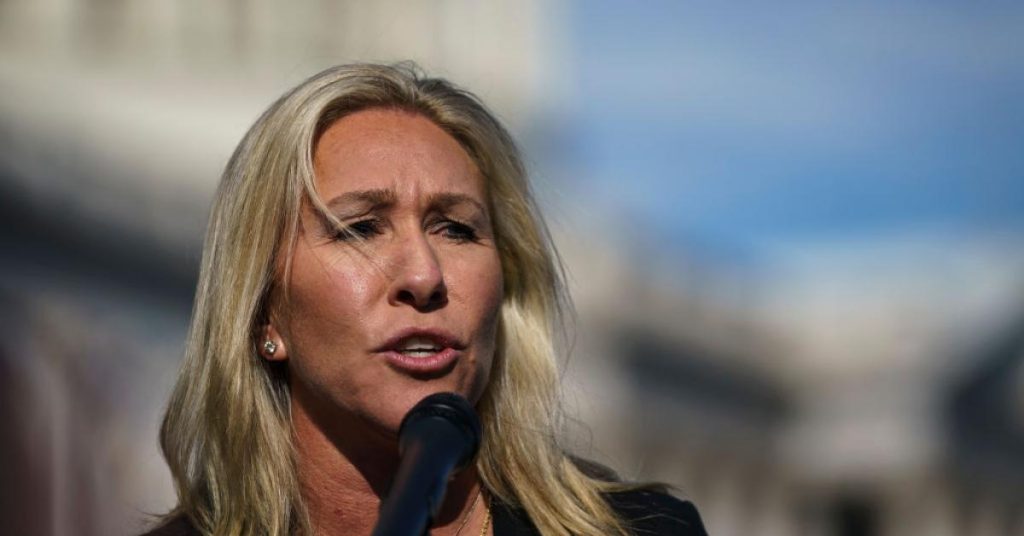Republican lawmakers, led by Representatives Dan Crenshaw of Texas and Marjorie Taylor Greene of Georgia, have put forth a new legislative proposal that aims to prevent Medicaid from covering gender transition drugs and surgeries for minors.
This bill, known as the Do No Harm in Medicaid Act, seeks to modify the Social Security Act to classify gender-transition procedures—including the use of hormones, surgeries, and puberty blockers—as prohibited activities under Medicaid.
This legislative move aligns with the administration of President Donald Trump, who recently reaffirmed that the official policy of the U.S. government recognizes only two sexes: male and female. *”The American people deserve accountability in how their taxpayer dollars are spent,”* stated Crenshaw.
He emphasized that using Medicaid funds for procedures that are not proven and could be irreversible is not just medically irresponsible but also a betrayal of public trust. He argued that the bill ensures Medicaid’s limited resources are allocated for evidence-based, medically necessary care.
Crenshaw highlighted that the bill is strategically designed to be integrated into the House budget reconciliation process, which could expedite its passage. *”Budget reconciliation provides a unique opportunity to pass meaningful reforms with direct fiscal impacts,”* he remarked. This approach ensures the bill can withstand procedural checks while delivering essential benefits for children and families.
Importantly, the proposed legislation does provide exceptions for medically necessary treatments related to conditions like genetic disorders or life-threatening illnesses. Crenshaw noted that this bill is the start of a broader initiative to prevent taxpayer funds from being used for such surgeries and drugs for minors.
The push for this legislation arises amid growing criticism of gender transition practices, especially from detransitioned adults who regret their decisions and have become infertile as a result. These critics have raised concerns about the financial motivations of healthcare providers and pharmaceutical companies, as transitioned children often require ongoing medication throughout their lives.
In recent years, Crenshaw and other lawmakers have supported similar legislative efforts. These include the Protect Children’s Innocence Act, which seeks to ban gender surgeries and drugs for children altogether, and the Parents Bill of Rights Act, which ensures parental consent for such procedures.
Additionally, the Children’s Hospital GME Support Reauthorization Act proposes to withhold federal grant funding for medical education from hospitals that perform these procedures on children. With Trump’s administration now in place and Republicans holding slight majorities in both the House and Senate, these bills could gain renewed momentum.
Crenshaw emphasized the significance of these legislative efforts, stating, *”By taking this step, we’re sending a clear message: the health and safety of our children are non-negotiable.”* He affirmed the commitment to continue advocating for policies that protect America’s future, one step at a time.
The introduction of this bill comes at a critical time when discussions around gender identity and the medical implications of transition procedures are increasingly prominent in political and social discourse. By focusing on the fiscal and ethical aspects, Republican lawmakers are seeking to ensure that governmental policies reflect their values of accountability and responsibility.
The bill’s supporters argue that it represents a necessary intervention to safeguard children from potentially harmful medical practices, emphasizing the need for careful consideration of long-term consequences. They highlight the importance of prioritizing proven medical treatments and maintaining public trust in the healthcare system.
In their view, the Do No Harm in Medicaid Act is a crucial step towards ensuring that taxpayer funds are not used to support what they consider unproven and risky medical interventions. This aligns with their broader agenda of promoting policies that reinforce traditional values and protect vulnerable populations.
The debate surrounding this bill is likely to continue as it progresses through the legislative process, with proponents steadfast in their belief that it addresses a critical issue facing American families today. They remain committed to advocating for policies that they believe will lead to a healthier and more accountable society.
As the conversation unfolds, the focus remains on the balance between individual rights and societal responsibilities, with lawmakers like Crenshaw and Greene at the forefront of this ongoing national discussion. Their efforts underscore the importance of legislative action in shaping the future of healthcare and social policy in the United States.




4 Comments
Time to end all of this extreme radical leftist diabolical agenda, period!!!
The liberal mind does not understand truth and logic.
True!
These surgeries will only result in a lifetime of more pain mentally, emotionally and physically. We are as a nation toying with what is bad, and what is worse.
Many of these surgeries involve those that don’t know who, or what they are and are grasping at a “Cure”. The taxpayers should not be involved in the funding of the psychosis.
We also should not be funding cancer surgeries for smokers, and for those who drink too much, or drug addicted. These are life choices, and their families, friends or private donations need to be used.